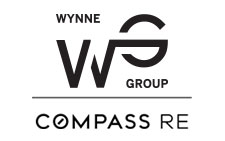
Living In PhiladelphiaWelcome Home
As a lifelong Philadelphian, Cherise “Agent Lady” Wynne, loves helping clients navigate the City of Brotherly Love and simplifying the home buying process. With extensive experience in real estate, Wynne continues to passionately advocate for her clients, ensuring they are able to find and get into the homes that meet their specific needs and priorities. Whether you’re a first time home buyer hoping to score the most square footage, a seasoned home owner searching for a neighborhood with more cultural offerings, or a new family that strives to get the kids into the best school system, Cherise will find the home that enables you to thrive.




